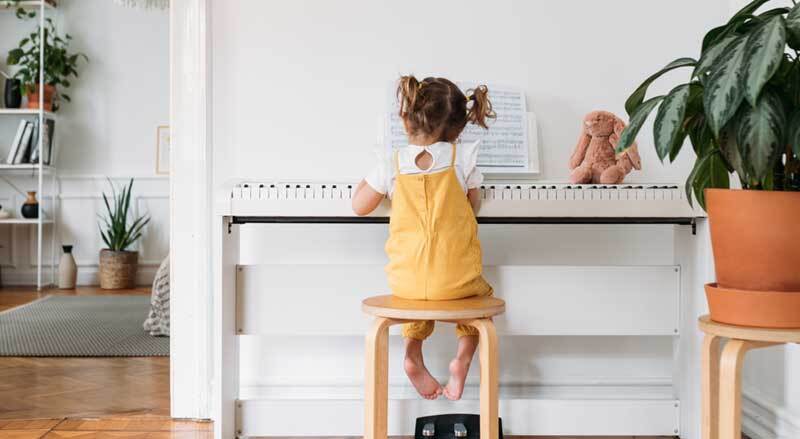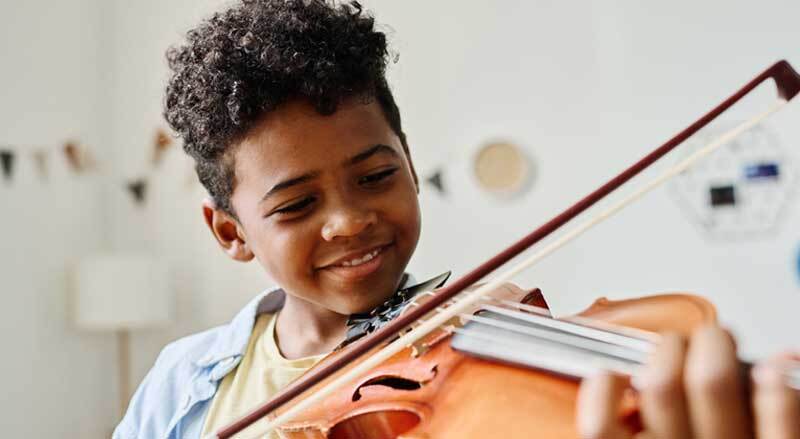
- bnaturalPianoAdmin
Lots of kids are excited about the thought of taking music lessons but struggle when it comes time to practice.
On the other hand, some kids love to practice and show off their new musical accomplishments.
While kids have their own feelings regarding practicing a musical instrument or voice, there are things you can do as parents to motivate your child to practice.
Find out the best age for your child to start music lessons.
Benefits of Practicing
When a child develops a welcoming attitude toward practicing, they’re developing self-discipline that will lead to personal fulfillment and success.
But this type of discipline isn’t necessarily natural for your child—it’s up to you to encourage practicing in fun ways that lead to self-motivation and a lifetime love of learning.
What Is a Growth Mindset?
When a child is encouraged to have a growth mindset, they believe that they can develop abilities through practice and dedication—and that hard work and perseverance can lead to great accomplishments.

However, a growth mindset must be nurtured. It’s easy for children to feel that their classmate is simply better at math or more talented at the piano. Unfortunately, this mindset makes them want to give up. They think, “What’s the use? I’ll never be as good as my friend.”
A growth mindset motivates kids internally to face challenges, persevere, and not be thrown off by setbacks.
Help Your Child Develop a Growth Mindset
There are things you can do to help your kid develop a growth mindset so they’ll believe their efforts will pay off whether it’s learning a new instrument or tackling a tough challenge—now and in the years ahead.
They will intrinsically want to face new challenges; motivation will come from within themselves and not from parental or other pressure.
Here are ways to help your child develop a growth mindset:
- Compliment their mastery of the process. Encourage effort put into practice instead of praising innate talent. Instead of saying after practice, “Your piano playing is so beautiful,” say “I noticed how much your improved after you went over those few bars three times.”
- Make sure your feedback emphasizes improvement and potential, rather than dwelling on what was done wrong.
- If your child is struggling during their practice, emphasize that these brief setbacks are simply opportunities to do better. Stress the value of the journey.
- Don’t overdo positive reinforcement, or it will lose its effect. A child may start to practice more for the reward of positive reinforcement rather than from intrinsic motivation.
Intrinsic vs. Extrinsic Motivation

When a child has intrinsic motivation, they want to practice for the joy it brings them. They become truly excited when they master a new musical passage and learn to love the process.
You want your child to become intrinsically motivated and have a healthy attitude toward practice and learning.
When a child is extrinsically motivated, they don’t act out of internal motivation—instead, they are motivated for a different reason such as fear of criticism, external rewards, or punishment. And these harmful motivations don’t offer long-term benefits regarding practice.
Don’t Pay for Success
As a parent, you never want to offer external rewards or punishments regarding practice and/or accomplishments.
If you pay your child for practicing or for accomplishments, it will replace their intrinsic motivation to accomplish and do better. They’ll learn to expect some type of external compensation for doing well and come to ignore their internal motivations.
Your child may also develop the expectation that they should receive monetary rewards for fulfilling their own personal responsibilities.
Similarly, if you punish your child for a lack of achievement, it will take away their desire to achieve for personal fulfillment.
More Ways to Motivate your Child to Practice
Make Sure the Challenge Fits Your Child
If a challenge is too easy for your child, they’ll most likely become bored. But, if the challenge proves too difficult, your child may experience self-doubt or become so discouraged that they refuse to even attempt it.
Help Them Enjoy the Process
Instead of focusing on the results of a practice session, let them know that being involved in the learning experience is truly the best reward and that it will lead to great things.
Express Your Natural Curiosity and Get Involved
Show your child that you’re excited about learning, and they’ll likely adopt the same attitude.

To encourage practice, offer to sit alongside them on the piano bench and quietly listen as they practice, or offer to turn pages in their music book. After the practice you can ask them to teach you something about music—like how to properly place fingers on the piano.
Ways to Make Practice Sessions Better
Here are some tips on how to improve your child’s practice sessions.

- Set a goal for each session—even if the session is only 5 minutes long.
- Have a plan for each session so the practice has a focus.
- Realize small goals are okay and can decrease intimidation for young children; simply working through several bars of a song can be an exciting goal.
- Inform your child that it’s okay if they struggle or fail during practice as it will help them improve next time
- Explain that feeling confused or frustrated is a natural part of learning and improving.
- Teach your child that perseverance and dedication to learning can far surpass natural talent.
- Let your child know how much you had to work on goals before reaching them and how you frequently experience failure.
- Try different practice times—for example, before school may work better than before dinner.
Finally, have your child leave their instrument out instead of putting it away after each practice session. They may see it and want to pick it up and play just for the love of it!
Here are some music games to make learning music fun for your child.
Contact B Natural Pianos for instrument and voice lessons.



